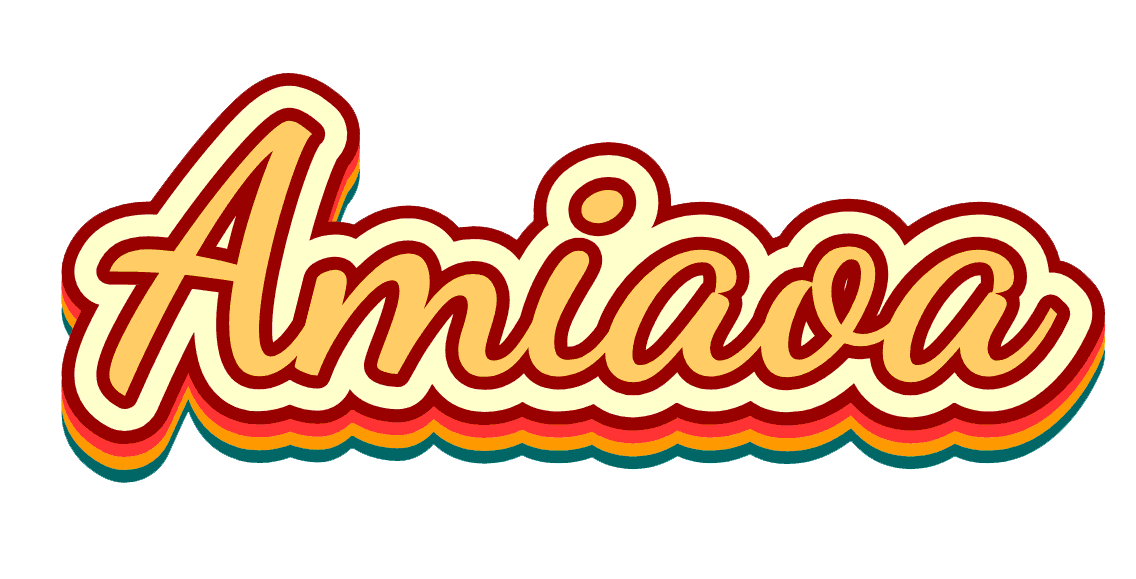Are you searching for the best magnesium for brain health? Well, you’re in the right place! The answer is: magnesium is a vital mineral that plays a crucial role in maintaining optimal brain function. It supports everything from mood regulation to memory enhancement. If you've ever felt like your brain is in a fog or you've been struggling with anxiety, it might be time to consider your magnesium levels. In this article, we’ll dive into why magnesium is essential for your brain, explore the different types available, and share tips on how to incorporate it into your daily routine. By the end, you’ll understand how to fuel your brain effectively with the right magnesium supplements and foods. So, let’s get started on this journey to better brain health together! 🌟
E.g. :Unlock Your Brain's Potential: Discover the Best MCT Oil for Brain Health
- 1、Magnesium: Your Brain's Secret Weapon 🧠✨
- 2、Magnesium Showdown: Which Type Wins for Brain Power? 🥊
- 3、Brain Food or Brain Booster? How to Get Your Magnesium Fix 🍫
- 4、Magnesium Myths Busted! 🤯
- 5、Your Personal Magnesium Action Plan 📝
- 6、Magnesium FAQ: Quick Answers to Burning Questions 🔥
- 7、Final Thought: Magnesium Matters More Than You Think
- 8、FAQs
Magnesium: Your Brain's Secret Weapon 🧠✨
Why Your Brain Loves Magnesium
Ever wonder why nutritionists call magnesium the "brain's best friend"? This mighty mineral powers over 300 biochemical reactions in your body - and guess what? Your brain uses most of them! Magnesium acts like a traffic cop for neurotransmitters, directing signals between brain cells to keep your thoughts clear and mood balanced.
Here's a fun fact that'll blow your mind: Your brain contains about 10% of your body's total magnesium! When levels drop, it's like your mental computer starts buffering - slower processing, glitchy memory, and that awful "brain fog" feeling. That's why finding the best magnesium for brain health isn't just smart - it's essential for keeping your mental software updated!
The Anxiety-Busting Mineral
Did you know magnesium deficiency might be why you're biting your nails before big meetings? Studies show low magnesium levels correlate with higher anxiety - it's like running your nervous system on empty batteries!
Imagine this: Magnesium helps regulate GABA, your brain's natural "chill pill" neurotransmitter. Without enough, your brain's alarm system gets stuck in overdrive. That's why many psychiatrists now recommend magnesium supplements alongside traditional anxiety treatments. Pretty cool, right?
Magnesium Showdown: Which Type Wins for Brain Power? 🥊
 Photos provided by pixabay
Photos provided by pixabay
Magnesium Threonate - The Brain's VIP Pass
Meet the rockstar of brain supplements: Magnesium L-Threonate. Unlike regular magnesium that gets stopped at the blood-brain barrier like an uninvited guest, this clever form sneaks right through to nourish your neurons!
Here's why scientists are excited: In animal studies, magnesium threonate boosted memory by 15% and learning speed by 20%. It's like upgrading your brain's RAM! The secret? It actually increases the number of functional synapses - those crucial connections between brain cells. Think of it as adding more lanes to your neural highways!
Glycinate vs Citrate: The Calm vs The Cleanse
Not all magnesium is created equal! Check out this quick comparison:
| Type | Best For | Absorption | Bonus Perks |
|---|---|---|---|
| Glycinate | Anxiety & Sleep | High | Gentle on stomach |
| Citrate | Detox & Digestion | Medium | Great for constipation |
Pro tip: If you're taking magnesium citrate for brain health, you might spend more time in the bathroom than the library! That's why glycinate often wins for cognitive support - all the brain benefits without the, ahem, digestive urgency.
Brain Food or Brain Booster? How to Get Your Magnesium Fix 🍫
Delicious Magnesium-Rich Foods
Who says healthy can't be tasty? Here are my top 5 magnesium-packed snacks:
1. Dark chocolate (the darker the better!) - Nature's antidepressant
2. Pumpkin seeds - Perfect crunchy salad topper
3. Almonds - Great with afternoon coffee
4. Spinach - Popeye knew what was up
5. Black beans - Brain-healthy burritos, anyone?
But here's the catch: Modern farming has drained magnesium from our soil. Today's spinach contains about 30% less magnesium than your grandparents ate! That's why even healthy eaters often need supplements to hit optimal brain-boosting levels.
 Photos provided by pixabay
Photos provided by pixabay
Magnesium Threonate - The Brain's VIP Pass
Want to maximize your magnesium? Take it with dinner! Magnesium works synergistically with calcium (hello, yogurt dessert!) and vitamin D (that salmon you're eating).
Warning: Don't pop your magnesium with morning coffee - caffeine can flush it right out of your system! Talk about counterproductive. Instead, make it part of your evening wind-down routine for better sleep and next-day focus.
Magnesium Myths Busted! 🤯
"More Magnesium = Better Brain?"
Hold your horses, supplement junkies! While magnesium is crucial, megadosing can backfire. The sweet spot? 300-400mg daily for most adults. Too much can cause:
- Diarrhea (the opposite of focus!)
- Muscle weakness (not helpful at the gym)
- Irregular heartbeat (scary stuff)
Remember: Your kidneys filter excess magnesium, but they've got limits. Think of magnesium like salt - essential in the right amount, problematic in excess.
"All Magnesium Supplements Are Equal"
Would you put regular gas in a Ferrari? Your brain deserves premium fuel! Oxide might be cheap, but with only 4% absorption, it's practically placebo pills. Invest in quality forms like threonate or glycinate - your neurons will thank you!
Here's a pro tip that saved me headaches (literally): Look for "bisglycinate" or "L-threonate" on labels. These forms are like first-class tickets for magnesium absorption compared to economy-class oxide!
Your Personal Magnesium Action Plan 📝
 Photos provided by pixabay
Photos provided by pixabay
Magnesium Threonate - The Brain's VIP Pass
Before supplementing, ask your doctor for an RBC magnesium test. Standard blood tests often miss deficiencies since most magnesium lives in cells and bones. This $50 test could save you months of guesswork!
Funny story: My client Sarah was taking magnesium for months with no results. Turns out she was deficient in vitamin B6 - which helps your body use magnesium! Moral? Nutrients work as teams, not solo artists.
Step 2: Start Low, Go Slow
Begin with 100-200mg daily and gradually increase. Your gut needs time to adjust - think of it like training for a magnesium marathon!
If you experience loose stools, switch to glycinate or threonate forms. They're like the luxury sedans of magnesium supplements - smooth ride, no digestive bumps!
Step 3: Track Your Brain Gains
Keep a simple log for 30 days:
- Sleep quality 🌙
- Morning focus ☀️
- Stress levels 🧘
- Memory recall 🧠
Most people notice improvements in 2-3 weeks. My client Mark said it best: "It's like someone dusted the cobwebs off my brain!" Could magnesium do the same for you?
Magnesium FAQ: Quick Answers to Burning Questions 🔥
"Can Magnesium Help My ADHD?"
Emerging research says maybe! Magnesium supports dopamine production - that crucial focus neurotransmitter ADHD brains often lack. While not a cure, many report calmer focus with magnesium glycinate.
Bonus: Combine it with omega-3s for extra brain firepower! It's like giving your neurons both the hardware upgrade (magnesium) and software update (omega-3s).
"Why Do I Crave Chocolate Before My Period?"
Your body's smarter than you think! Menstrual cycles deplete magnesium, and chocolate happens to be rich in it. Instead of binging on sugar, try magnesium-rich dark chocolate or supplements for PMS relief.
Pro tip: Magnesium + vitamin B6 = ultimate PMS-fighting duo. It's like nature's Midol without the side effects!
Final Thought: Magnesium Matters More Than You Think
In our stressed-out, fast-food world, magnesium deficiency is the silent brain drain nobody's talking about. The best magnesium for brain health isn't a luxury - it's basic maintenance for your most important organ!
Here's my challenge to you: Give magnesium 30 days. Track your sleep, stress, and mental clarity. You might just discover what I did - that sometimes the simplest solutions make the biggest differences. After all, shouldn't your brain get the best fuel available?
As we wrap up our deep dive into the fascinating world of magnesium, it’s clear that this mineral is not just a health buzzword; it’s a vital component for maintaining brain health. We've learned that magnesium serves as a traffic cop for neurotransmitters, boosts memory with forms like Magnesium L-Threonate, and even helps keep anxiety in check. By incorporating magnesium-rich foods into your diet and considering the best supplements, you can effectively support your brain's function and overall well-being. So, if you want to enhance your mental clarity and reduce stress, I encourage you to take action: start monitoring your magnesium intake and see how it impacts your life! And hey, don’t forget to share your experiences in the comments below or connect with us on social media! Your journey to better brain health could inspire others to join in. 🧠✨
E.g. :Types of Magnesium and Their Benefits
FAQs
How does magnesium affect my brain health?
Magnesium plays a vital role in brain health by supporting over 300 biochemical reactions, including those that help transmit signals between brain cells. When your magnesium levels are sufficient, your thoughts stay clear, and your mood remains balanced. Low magnesium can lead to issues like brain fog and memory problems, making it crucial to find the best magnesium for brain health to keep your mental performance sharp.

